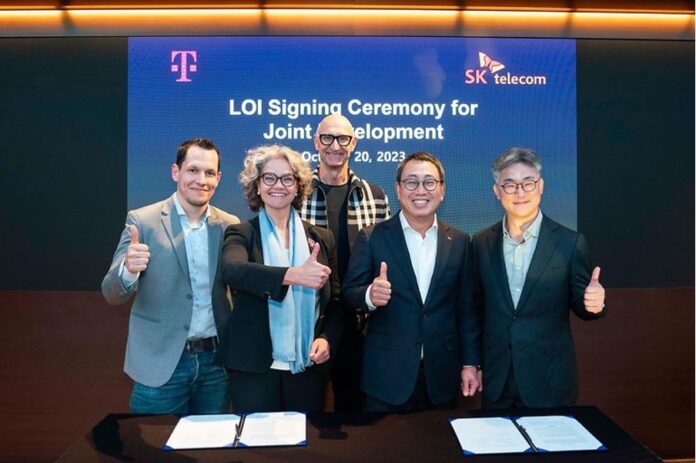This kicks off the Global Telco AI Alliance’s activities, which was founded in the summer by DT, e&, Singtel and SKT
SK Telecom (SKT) and Deutsche Telekom (DT) are to jointly develop a large language model (LLM) for the telecoms industry, specifically for the requirements of digital assistants in customer service.
The idea is to make it easier for telcos to deploy generative AI (GenAI) models quickly and efficiently for use by operators in Europe, Asia and the Middle East, in setting up GenAI-powered digital assistants.
Raising a low bar?
One of first interfaces to benefit from the work will be Telekom Deutschland’s (DT’s opco in Germany) Ask Magenta service bot. It has served customers since 2016 as a central gateway for service requests.
It has also been made available on the mobile phone hotline so customers can speak freely – as customers do using ‘chat’ online.GenAI – in natural language, rather than being asked for key words to describe their issue.
Last year, Ask Magenta conducted more than 4 million dialogues with customers and DT claims it solves more than a third of their concerns immediately. That means the majority, about 66%, are referred to human agents, either because the customer prefers to speak to a human or the request is beyond the capabilities of Ask Magenta. Either way, there is clearly a lot of headroom for improvments.
LLM for telecoms
The LLM partners say LLM agreement is the start of activities by the Global Telco AI Alliance founded in the summer by of DT, e&, Singtel and SKT. SKT and DT plan to collaborate with AI companies such as Anthropic (on Claude 2) and Meta (on LLaMa2) to co-develop a multi-lingual LLM including English, German and Korean.
The plan is to unveil the first version of the telco-specific LLM in Q1 of 2024. DT and SKT have a long-standing technology partnership.
Unique data
Claudia Nemat, Member of the Board of Management for Technology and Innovation at DT, said, “To maximise [GenAI’s] use especially in customer service, we need to adapt existing large language models and train them with our unique data. This will elevate our generative AI tools.”
“Through our partnership with Deutsche Telekom, we have secured a strong opportunity and momentum to gain global AI leadership and drive new growth,” said Ryu Young-sang, CEO of SKT. “By combining the strengths and capabilities of the two companies in AI technology, platform and infrastructure, we expect to empower enterprises in many different industries to deliver new and higher value to their customers.”
Picture shows Jon Abrahamson, Claudia Nemat, Tim Höttges (from left to right, with Höttges at the back), from DT, then James Ryu and SG Chung from SKT © SK Telecom



